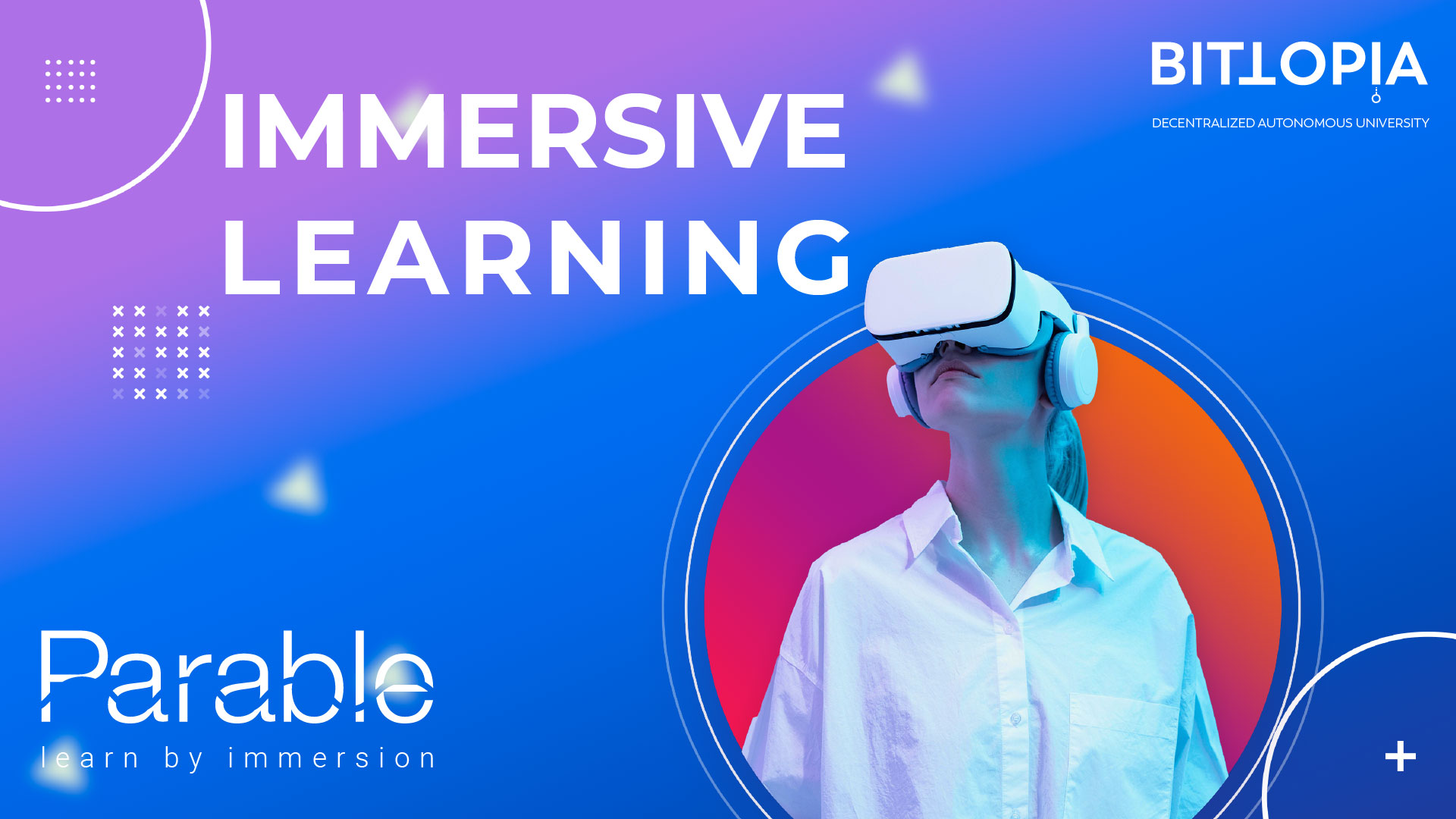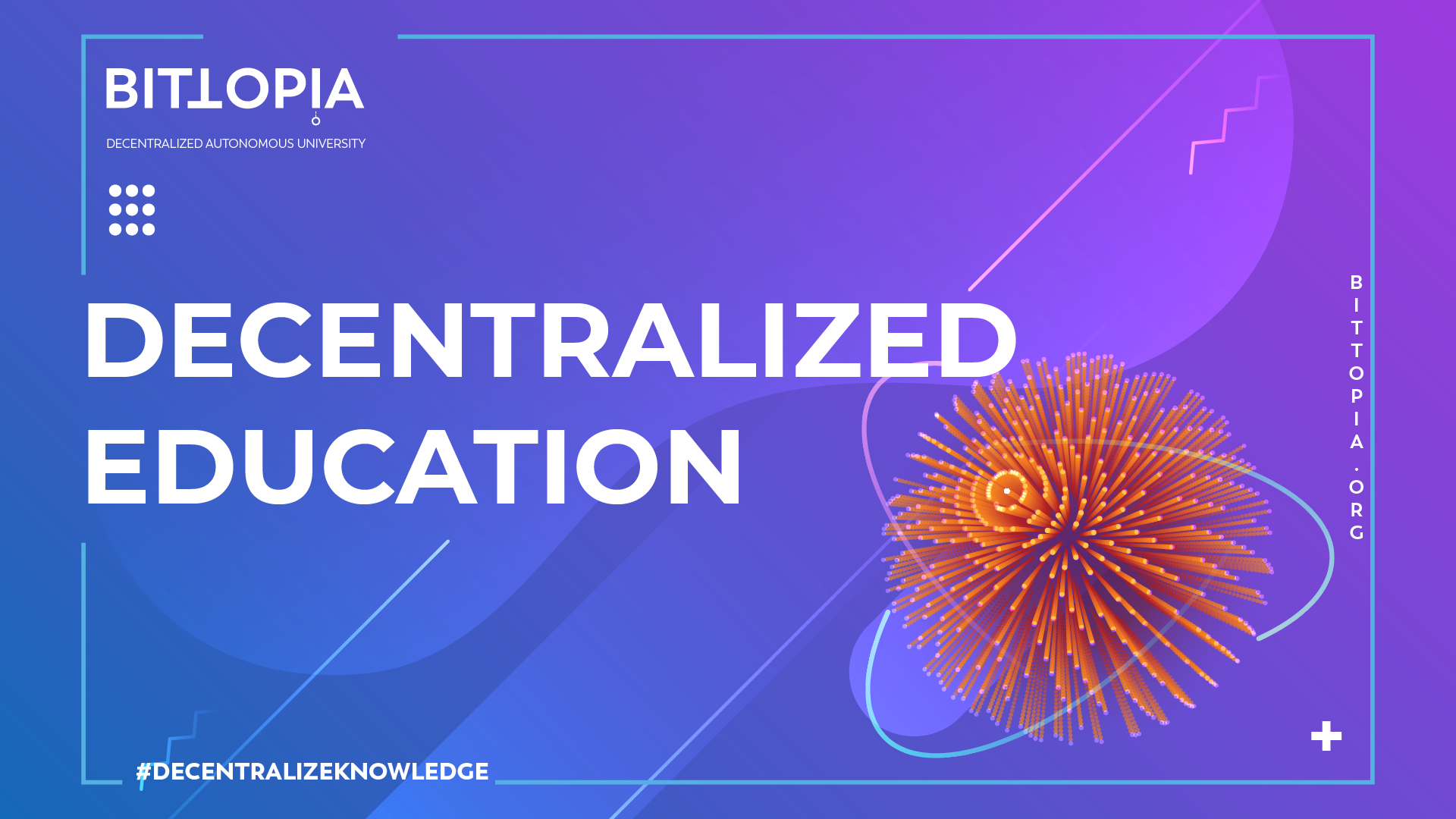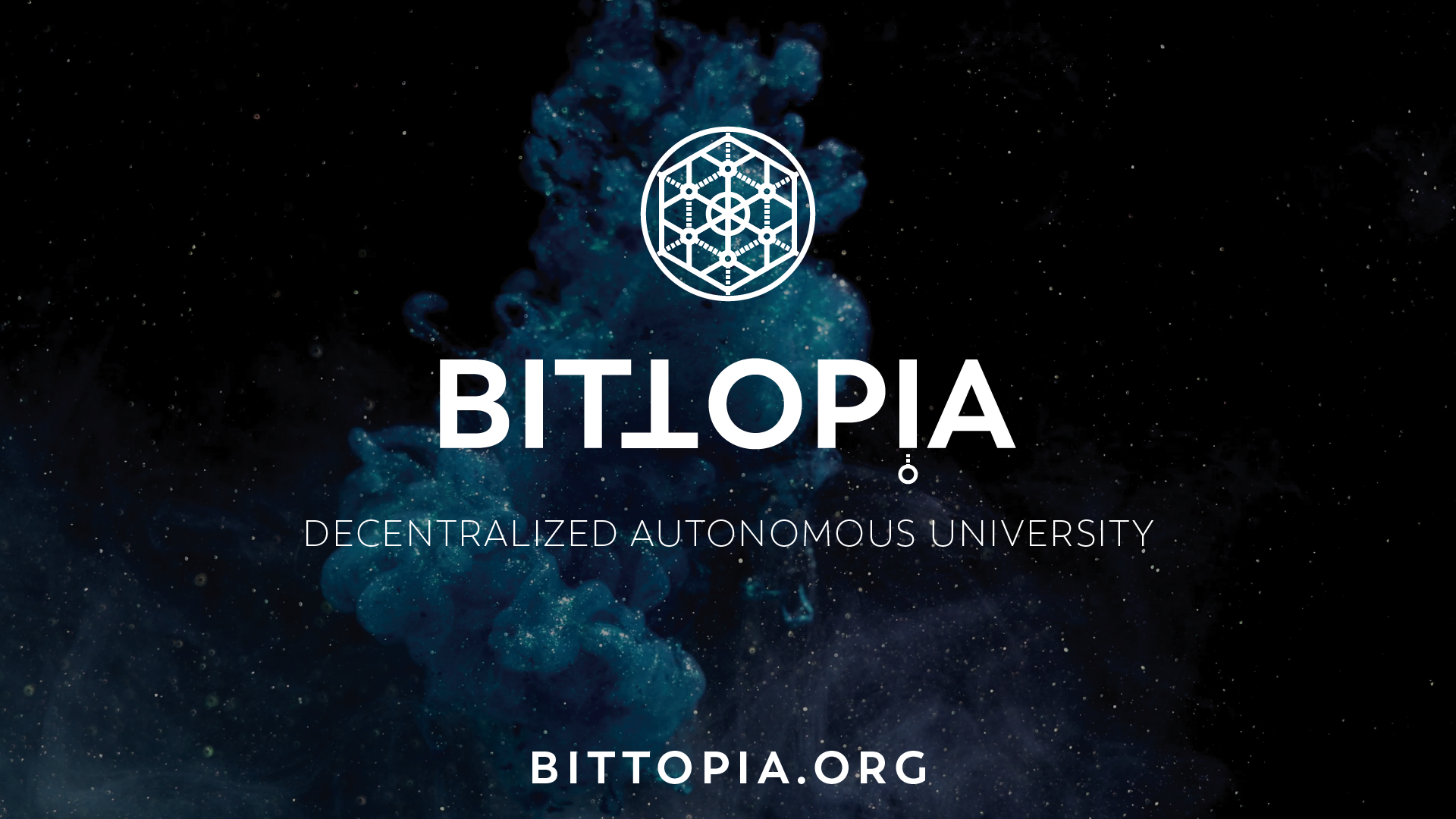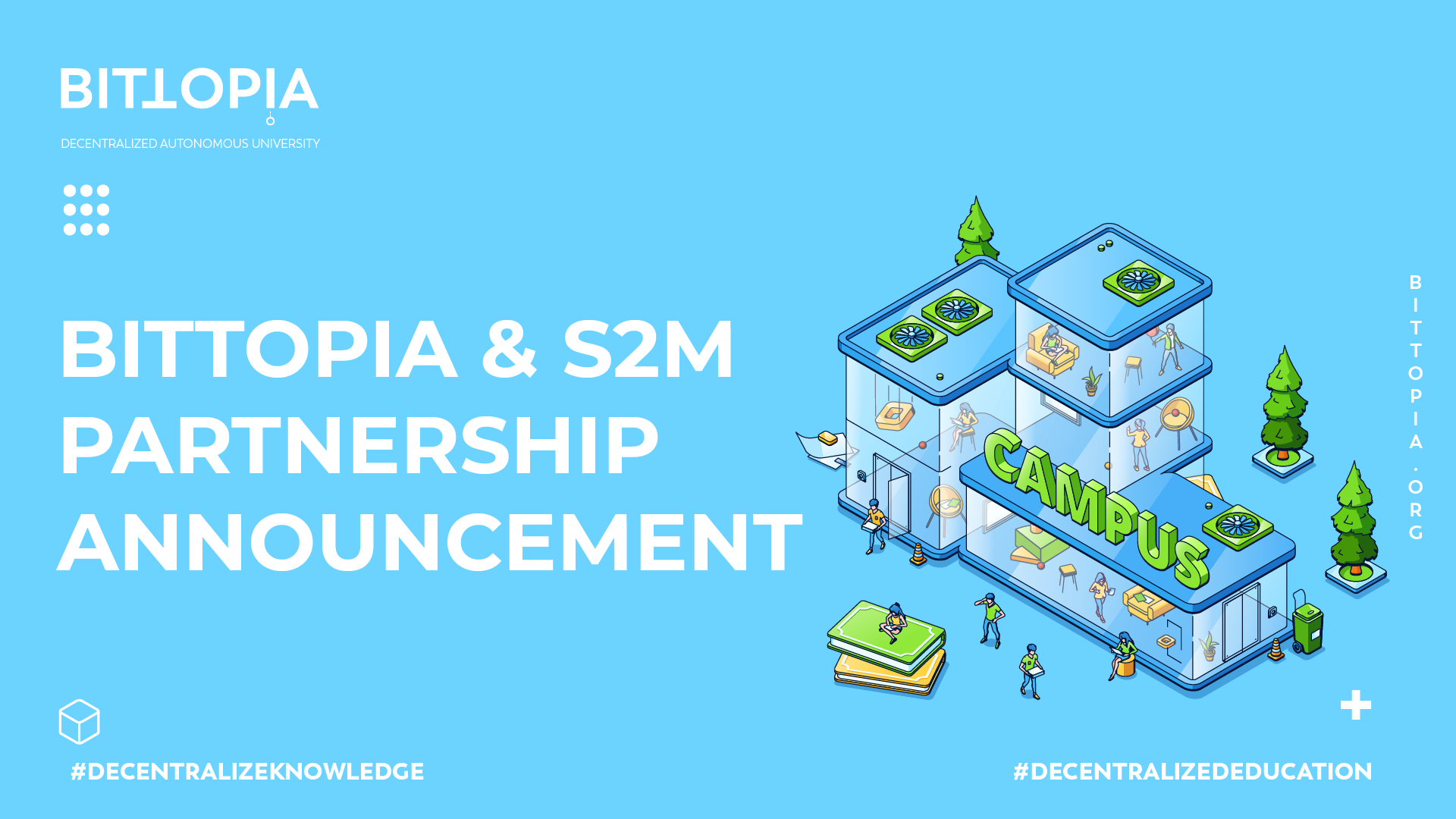Immersive Learning: how Bittopia will transform education with virtual reality
Dec 17, 2021 · 4 min read

The possibility of studying and working remotely changed our perspective about the facilities technology offers us to develop our capacities.
Now it is time to expand our horizons towards the impact and promise virtual reality holds as an immersive learning tool in training and education.
The last two years has without a doubt impacted student and teacher access to traditional brick and mortar classrooms. And in a good way, it has pushed everyone to reconsider the necessity of classrooms as a primary teaching environment, which has surfaced some important questions.
How are students able to get a quality education while not attending classes in a traditional school setting? How can remote workers engage in continuing education courses when offices and training centers are closed or have mandated limited availability? The answer is as fun as it is exciting and accessible: virtual reality and immersive learning.
Immersive education, through virtual reality (VR), is transforming the way professionals learn and train. Bittopia University in partnership with Parable, a cutting edge innovator in the development of immersive VR solutions for education, is shaping this new wave of learning, which will be launched on the world market in 2022.
Amin Rafiee, founder and CEO of Bittopia, points out that decentralized education with an immersive learning method will offer an unprecedented experience and will be available to everyone. “Immersive learning, unlike any other technology medium, empowers students to put their course knowledge to the test by interacting with content-rich, dynamic VR environments that simulate real-world scenarios and challenges.”
Parable’s innovative and user-friendly no-code VR editor will enable Bittopia mentors to quickly and easily create engaging VR courses for students around the world. Bittopia University students will be able to immerse themselves in an interactive, efficient, and entertaining way in the knowledge of the different professional disciplines. All courses will have as learning support an intuitive, simple and totally interactive virtual reality system.
According to a recent study by PWC, VR learning is four times more effective than e-learning, offers 250% more confidence to the student about their learning, and students complete courses four times faster than in an average classroom. Furthermore, this method generates more emotional connection of the students with the content.
As schools and workplaces continue to shift to remote learning and working, statistics like these show how VR learning is rising to answer the next challenging question: how can we realistically simulate real-world scenarios and engage with them as remote learners?
Bittopia University’s proposal is that students can learn by experimenting in interactive learning environments that seem real. In addition, not only will we offer a more effective method of learning, our students will also be able to access growing disciplines, which are not in the curriculum of any university, such as everything related to decentralization
This learning method is applicable to students in all professions, even in industries where practices can be risky in real life and mistakes can lead to accidents. Some of the great advantages of immersive learning are that students can make mistakes without suffering the consequences, reflect on their decisions, and dare to innovate with new solutions.
The Parable founders, Sam Ryan & Octavian Nasui, say that immersive learning solutions give students the advantage to experience, explore, engage, and enjoy study fields we once thought were impossible.
VR allows students to learn in a way that was literally impossible just ten years ago. Teachers say that getting hands on and learning through experimentation is often times the best way for students to really understand chemistry, physics, biology, you name it.
These concepts can stay abstract in students mind’s for a long time, unless teachers and curriculums dedicate lab time to solidify conceptual knowledge through active experimentation. VR opens up a new horizon of possibilities for students in a way that is fun, engaging and limitless.
A brief retrospective look shows that the immersive learning market has only grown in the last few years. In 2020, the immersive training market was valued at $26 billion. And the overall immersive technology market size is expected to reach nearly $300 billion by 2024. As a result, immersive technologies are expected to impact every aspect of our lives, transforming how we live, work and learn.
Currently, we can see that platforms with a great impact on society lifestyle, on a global scale, are already adapting their services to offer immersive experiences, as is the case with Facebook and its recently announced metaverse.
One of the main ideas of Bittopia University, when taking this tool to professional training, is staying ahead on the curve by democratizing immersive learning to students, teachers, innovators, and entrepreneurs around the world. In this way, we commit to one of the organization pillars, encourage decentralized education through decentralized technologies.
Related news

Decentralized Education
Decentralized Education: The Disruptive Model That Will Take Higher Education to the Next Level

Decentralized University
Meet Bittopia, the decentralized university that aims to revolutionize education
Stay Informed
Subscribe to our newsletter to receive our latest news and updates.
*We will never share, rent, or sell your email address to anyone, ever.